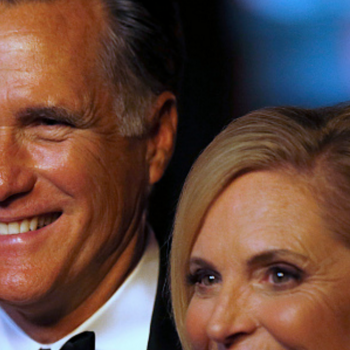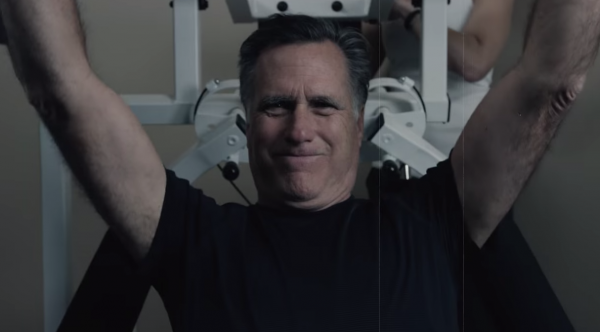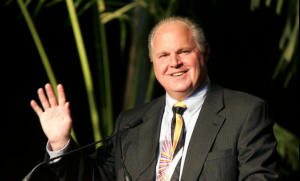I first encountered true political correctness in law school. The year was 1991, George. H. W. Bush was still in office, and our campus literally seethed with hatred for the Reagan/Bush era. When I raised my voice to speak for conservative values, I would sometimes be treated to a cascade of boos and catcalls — attempts to literally shout me down. I received vile messages in my mailbox, including calls that I should “go die.” Other conservatives saw their faces pasted over gay porn and then plastered on campus walls. While some on the Left attempted to engage conservative ideas, many others simply postured and preened, trying to outdo each other in the stridence of their denunciations.
I grew to loathe political correctness. It is the enemy of rational argument, it is a slave to passing fads and fashions, and it creates echo chamber communities that eventually isolate and marginalize themselves.
Why bring up PC now? Because of this story:
Free Republic founder Jim Robinson has a message for supporters of Mitt Romney: go away.
In an email to POLITICO this afternoon, Robinson admitted that the site routinely blocks Romney supporters from posting — and offered no apologies for the practice:
“Free Republic is a pro-life, pro-family, pro-gun, pro-small government, pro-constitution, pro-liberty site. Governor Romney is none of the above. His record is that of an abortionist, gay rights pushing, gun grabbing, global warming advocating, big government, mandate loving, constitution trampling, flip-flopping liberal progressive with no core values. That and the fact that he is the chief architect and advocate for ObamaCare disqualifies him for any consideration whatsoever on Free Republic as a potential nominee for the presidency.”
To be clear, Free Republic — while not the largest site in the conservative universe — is hardly a small-time player. According to Quantcast it has more than 1.5 million monthly visits, and it’s the site that broke the Rathergate scandal in 2004 that brought down the CBS News anchor and arguably influenced the outcome of the Bush/Kerry presidential election.
And now they won’t even let pro-Mitt conservatives make an argument on their site. That is political correctness in action — conservative political correctness. And I fear that its grip is extending beyond Free Republic. Last month I had my own encounter with conservative PC. A series of erroneous news reports led a prominent local talk radio host to (wrongly) declare that I was causing a client to surrender to ACLU demands, essentially called me a coward, and then urged local Tea Party leaders to raise money to “fire” me and replace me with a “real” lawyer. When I tried to call in to correct the record, he wouldn’t even let me engage.
Fortunately, however, the truth was on our side. Recognizing that Tea Party patriots are literally hungry for information, we decided not to engage with uninformed talk radio hosts but instead to take our case directly to the public — to answer questions from all comers. So we held a public forum, and more than 1,200 Tennesseans attended (you can see a local television news report, including my comments, here). By night’s end, I had explained our commitment to defending the First Amendment and opposing the ACLU’s religious censorship. While not everyone was satisfied, I was grateful the crowd listened to what I had to say, asked thoughtful questions, and behaved exactly opposite of the talk radio host: they engaged.
The Tea Party is not politically correct. But I fear that some of its leaders and most vocal advocates are. Mark Levin has become so strident in defining true conservatism that I sometimes find it hard to listen. I was saddened to see one of my favorite conservatives, Rush Limbaugh (heck, I’ve even named my fantasy baseball team “The Limbaughs” since 1992), fall prey to the winds of conservative fashion and flatly declare Mitt Romney “not a conservative,” a statement that stands in stark contrast to his thoughts in 2008:
I think now, based on the way the campaign has shaken out, that there probably is a candidate on our side who does embody all three legs of the conservative stool, and that’s Romney. The three stools or the three legs of the stool are national security/foreign policy, the social conservatives, and the fiscal conservatives. The social conservatives are the cultural people. The fiscal conservatives are the economic crowd: low taxes, smaller government, get out of the way.
Not even the dean of the beltway GOP, George Will, is immune to the prevailing winds of “true conservative” fashion. In last week’s much-circulated column, he declared Mitt Romney the “pretzel candidate” and concluded with this scathing statement:
Has conservatism come so far, surmounting so many obstacles, to settle, at a moment of economic crisis, for this?
But as Ramesh Ponnuru noted in NRO, Mr. Will hasn’t always had the same view of Mitt. Here he is in 2007:
The axiom is as old as human striving: The perfect is the enemy of the good. In politics this means that insisting on perfection in a candidate interferes with selecting a satisfactory one. . . .
Romney, however, is criticized by many conservatives for what they consider multiple conversions of convenience — on abortion, stem cell research, gay rights, gun control. But if Romney is now locked into positions that these conservatives like, why do they care so much about whether political calculation or moral epiphany moved him there?
What explains these flip-flops? Did Mitt Romney move left between 2007 and 2011? Hardly. His platform is conservative, his record in business and as governor is conservative (both fiscally and socially), and — in an era of record deficits, stagnant job growth, and debt downgrades — there’s a strong conservative case to be made for a man who has turned deficits into surpluses, job losses into job growth, and debt downgrades into upgrades. Yes, I know that Romneycare is deeply problematic to many conservatives (though we often forget that when he fashioned his health care plan, he did exactly what we want our Republican governors to do: turn to a conservative think tank for assistance), and I certainly understand there are good arguments for other candidates, but simply declaring Mitt outside the conservative movement is nothing more than PC nonsense.
NRO’s Jay Nordlinger hits the nail on the head:
Barry Goldwater once hollered, “Grow up, conservatives!” I sometimes feel the same way. We who are conservative aren’t meant to be 100-percenters. That’s more a Bolshevik trait: “What, you favor a lower grain quota? Up against the wall!” Politics is not for the pure, and ideologues are a nuisance. The American electorate is bigger than National Review Online (unfortunately).
A belief in ideological purity is much like a belief in any other kind of earthly purity — it’s vanity, a chasing after the wind. How can human beings — who on this Earth are doomed to “see through a glass darkly” ever expect to know or define the best ideas, the absolute right ideas, in every circumstance? We live, we learn, and — yes — we sometimes change our minds. I’m a conservative in large part because of what I don’t know, because traditions arise out of the wisdom of many, and because I don’t look to any man to be the “One.”
Vote for Mitt, or not. Support my legal strategy in any given case, or not. But let’s not pretend that all the questions are settled, that our fellow citizens are defective for their disagreement, and that all right-thinking people see things our way. Down that path lies division, isolation, and marginalization.









